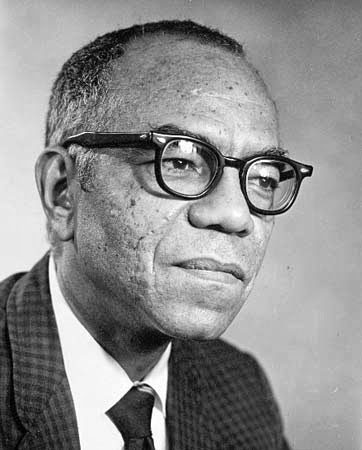Ulysses Kay, in full Ulysses Simpson Kay (born Jan. 7, 1917, Tucson, Ariz., U.S.—died May 20, 1995, Englewood, N.J.), American composer, a prominent representative of the neoclassical school.
- Lehman College of the CIty of University of New York
- Neoclassical , composed compositions with no overt hint of African American overtones
- Elegant
- Jazz band, glee club, marching band
Kay’s music is characterized by melodic lyricism and tonal orientation (i.e., organized around a given tone as a focal point) supplemented by chromaticism (use of all tones of the chromatic scale, whether or not they belong to a particular key). In his later works he also used quartal harmony, or chords built of tones a fourth apart, rather than the usual third. His works include many film and television scores, among them his notable Essay on Death (1964), a tribute to President John F. Kennedy. Besides large orchestral works, including the Symphony (1967) and Southern Harmony(1975), Kay wrote chamber music, choral works such as the cantata Song of Jeremiah (1945), organ and piano music, short band pieces, and five operas: The Boor (1955), The Juggler of Our Lady (1956), The Capitoline Venus (1970), Jubilee (1976), and Frederick Douglass (1991).


